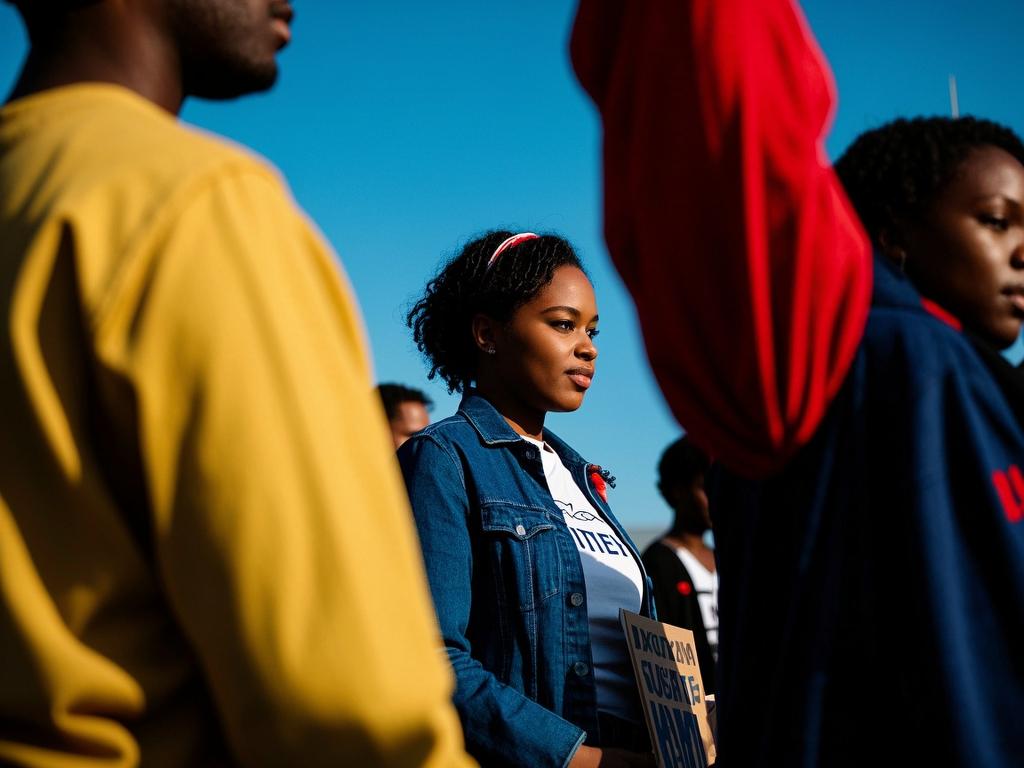
# The Psychology of Empathy in Social Justice: Standing Up for Others!
Hey there, fellow thinkers! Today, we're diving headfirst into the fascinating realm of empathy in social justice. It's a topic that's been buzzing lately, and for good reason. Empathy isn't just a warm, fuzzy feeling; it's a powerful force that can drive real change in the world. So, let's strap in and explore how we can use our empathy to stand up for others and make a difference.
First things first, what exactly is empathy? Well, it's not just feeling sorry for someone. Empathy is the ability to understand and share the feelings of another person. It's putting yourself in someone else's shoes and seeing the world through their eyes. And in the context of social justice, empathy is the key to building bridges, breaking down barriers, and creating a more just and equitable society.
Think about it. How can we fight for social justice if we don't understand the experiences of those who are marginalized? How can we advocate for change if we can't empathize with the pain and suffering that others are going through? Empathy allows us to connect with others on a deeper level, to hear their stories, and to take action to make things better.
But here's the catch: empathy isn't always easy. It requires us to step outside of our own comfort zones, to confront our biases and assumptions, and to be open to new perspectives. It means listening to people who may have different opinions or experiences than us, even if it makes us uncomfortable. And let's be honest, that's not always fun.
So, how can we cultivate empathy in ourselves and in others? Well, one of the best ways is to practice active listening. When someone is sharing their story with us, really listen. Don't interrupt, don't judge, just listen. Try to understand their feelings and experiences without getting caught up in our own thoughts or opinions. And if we don't understand something, ask questions. Let them know that we're interested in hearing their story and that we want to learn more.
Another way to cultivate empathy is to expose ourselves to different perspectives. Read books, watch movies, listen to podcasts, and engage in conversations with people who have different backgrounds and experiences than us. By exposing ourselves to a variety of viewpoints, we can broaden our horizons, challenge our assumptions, and develop a greater understanding of the world around us.
And of course, empathy isn't just an individual trait; it's a social skill. We need to create a culture of empathy in our communities, our workplaces, and our schools. We need to encourage people to share their stories, to listen to others, and to take action to make things better. And we need to hold ourselves and others accountable for our actions and our words.
So, let's talk about some of the ways that empathy can play a role in social justice. One of the most important ways is by helping us to understand the experiences of those who are marginalized. When we empathize with someone who is facing discrimination, oppression, or injustice, we can better understand the impact that these experiences have on their lives. We can see the world through their eyes and feel their pain and frustration.
And once we understand their experiences, we can take action to make things better. We can advocate for policies and programs that promote equality and justice. We can support organizations and movements that are working to address social issues. And we can use our voices and our platforms to raise awareness about these issues and to inspire others to take action.
But empathy isn't just about understanding the experiences of others; it's also about taking action to make things better. When we see someone in need, we need to be willing to step in and help. We need to use our privilege and our resources to make a difference in the lives of others. And we need to do it without expecting anything in return.
Of course, standing up for social justice isn't always easy. It can be scary, it can be uncomfortable, and it can even be dangerous. But if we want to create a more just and equitable society, we need to be willing to take risks. We need to be brave enough to speak out against injustice, even when it's unpopular. And we need to be persistent enough to keep fighting, even when the going gets tough.
So, let's challenge ourselves to be more empathetic. Let's practice active listening, expose ourselves to different perspectives, and create a culture of empathy in our communities. Let's use our empathy to stand up for others, to fight for social justice, and to make the world a better place.
And as we do, let's remember that empathy is not a weakness; it's a strength. It's the ability to connect with others on a deeper level, to understand their experiences, and to take action to make things better. So, let's embrace our empathy, let's use it to make a difference, and let's show the world what we're made of.
Now, I want to hear from you. How do you think we can cultivate empathy in ourselves and in others? What are some of the ways that empathy can play a role in social justice? Share your thoughts in the comments below!
And if you're looking for more inspiration and resources on empathy and social justice, be sure to check out some of the links below. There are some amazing organizations and individuals out there who are working hard to create a more just and equitable world, and I know that you'll find their stories and their work inspiring.
So, let's get started. Let's use our empathy to stand up for others, to fight for social justice, and to make the world a better place. Together, we can make a difference!
[Links to relevant resources]
[Call to action]

